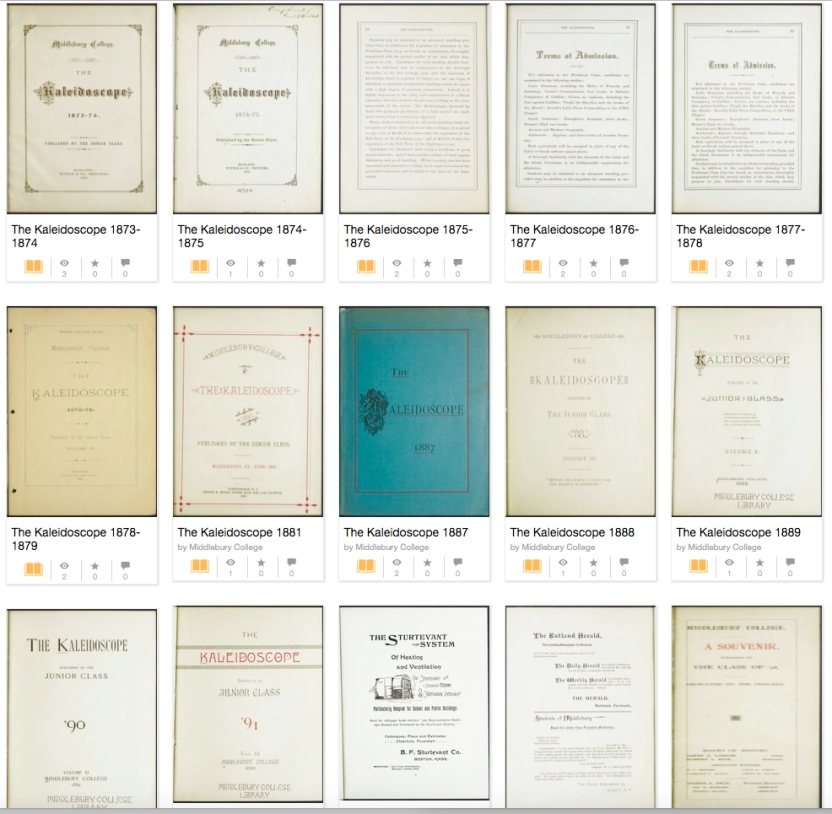New Digital Yearbook Collection Goes Back to 1874

MIDDLEBURY, Vt. – Middlebury College Special Collections and Archives has launched a new digital collection of yearbooks dating back to 1874. The collection currently includes 123 volumes of The Kaleidoscope, all available for public browsing in a searchable, digital book format, offering a striking look at how Middlebury has evolved since the mid-1800s.
“The Kaleidoscopes are tremendously informative documents,” said College Archivist Danielle Rougeau. “They put names and faces together for administration, faculty and students—in some instances, they provide the earliest photographic record in the College Archives of not only individuals, but also student groups, sports and other activities, and the campus buildings and grounds.”
Rougeau says that, except for 1901–1908, an issue of The Kaleidoscope has been produced every year since the book’s founding in 1874. The majority of the College’s yearbook collection has been added through donations by alumni and their families, and she encourages anyone who owns one of the missing volumes to be in touch with Special Collections and Archives.
The library commissioned Trigonix, a Montreal-based company specializing in scanning fragile documents, to complete the digitization process. All 123 books were shipped to Canada where they were placed in protective cradles and shot with a high-resolution camera. The resulting images were converted to PDF format to be searchable online.
The new gallery represents a massive effort, following digitization projects for large swaths of the Campus, alumni newsletters, magazines, and handwritten notes that date back to the earliest days of the College.
“We’re not only balancing cost and labor, but the risks involved when we entrust our historic collections—even temporarily—to another caretaker,” said Rebekah Irwin, director and curator of Special Collections and Archives. “We are quite fond of the materiality of our collections, so when we send them off-site for conservation treatments or digitization, we do so with careful consideration and caution.”
Irwin notes that, unlike the Campus or alumni newsletters, the yearbooks were not produced with any preconceived idea as factual historical documents, but rather were “each graduating class’s collective—and imperfect—memory.” But despite their limitations, yearbooks always elicit strong emotions.
“While a single year of The Kaleidoscope captures select memories and details, 125 volumes tell a story about a changing campus, its students, and traditions,” said Irwin. “My hope is that the online collection broadens our appreciation for The Kaleidoscope as a kind of historical corpus, in addition to being a document that captures memories and impressions for the students who spent time here.”
For More Information
Digital Yearbook Collection
Middlebury Special Collections and Archives

